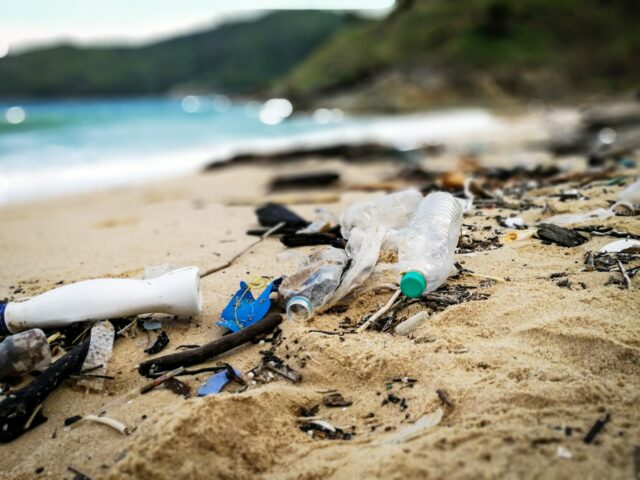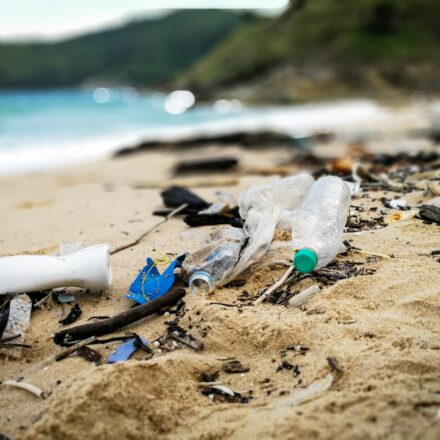Healthy oceans and technology solutions may not, at first glance, seem closely connected, but oceans are critical to our survival. With 71% of the earth covered by water, oceans help to regulate our climate, provide food and generate most of the oxygen in our atmosphere, and we rely on oceans to keep our global economy afloat. Regardless of industry or sector, we need oceans for our survival.
Within the last decade, at Dell Technologies, we became increasingly aware of the problem of plastics in our global oceans and waterways. By 2050, the ocean is expected to contain more plastic than fish (by weight), and it is estimated there are more than 86 million metric tons of plastic in our oceans. Water bottles, food containers and other discarded plastics pollute oceans and break down into microplastics, which disrupt underwater ecosystems. As a global company, we believe it is our responsibility to take care of our oceans to nurture our one and only planet.
As an engineer by trade, my role at Dell is to identify and incorporate renewable, recycled and sustainable materials into our packaging. Roughly eight years ago, we saw an opportunity in recycled ocean-bound plastics. And in 2017, Dell Technologies boldly committed to doing what we can to keep plastic waste out of the ocean and in the circular economy. We quickly realized the supply chain of recycled ocean-bound plastics was not yet established. Dell partnered with Lonely Whale, a nonprofit, to launch NextWave Plastics, a consortium of global companies working together to create a global network of ocean-bound plastic supply chains to tackle the growing problem of plastic pollution in our oceans and waterways. Through this cross-industry, collaborative and open-source initiative, we helped establish the first-ever commercial-scale socially responsible supply chain for recycled ocean-bound plastics.
Today, on World Environment Day, we celebrate NextWave’s five-year anniversary and milestone of diverting the equivalent of 2.27 billion water bottles from entering the ocean since 2017. The network now spans 21 countries, including Indonesia, Haiti, the Philippines, Denmark and Chile. It includes 25 recycled ocean-bound plastics suppliers that provide NextWave member companies with Nylon 6 and 66, PET, HDPE and PP plastics to use in their products and packaging.
We’ve incorporated recycled ocean-bound plastics into our packaging and products to support the achievement of our goal that we will make 100% of our packaging and 50% of our products from recycled or renewable materials by 2030. In fact, in FY23, we more than doubled our use of this recycled material when we added it to products like EcoLoop carrying cases and the fan housing of certain Latitude, Precision and OptiPlex products. Cumulatively, Dell has kept the equivalent of 39.2 million plastic bottles in the circular economy and out of the ocean.
Prioritizing the Well-being of Waste Pickers
Since plastics break down in water, we must intercept the material before it enters the ocean. This is why collection points are within 50 kilometers (about 31 miles) of beaches, waterways and riversides – areas not served by municipal waste collection. Core to the success of the NextWave partnership are the development and investment in a supply chain that is equitable and socially responsible. Among 20 million waste pickers, who manage most global waste collection and recycling, is the informal supply chain that collects ocean-bound plastics. When we formed the NextWave consortium, we prioritized building socially responsible ocean-bound plastic supply chains that help to protect the people who earn their living as informal waste collectors.
The collective goal of NextWave is to prevent a minimum of 25,000 tons of plastic – the equivalent of 2.7 billion single use plastic water bottles – from entering our oceans by 2025, and we are more than 80% there. Since we started this journey in 2017, recycled ocean-bound plastics have been used in more than 340 products, including technology, office furniture, carpet tiles, bike components and packaging, to name a few. So, we are well on our way to meeting this goal. The best action each of us can take is to limit our use of plastics, share this story and learn about how more companies can get involved.


